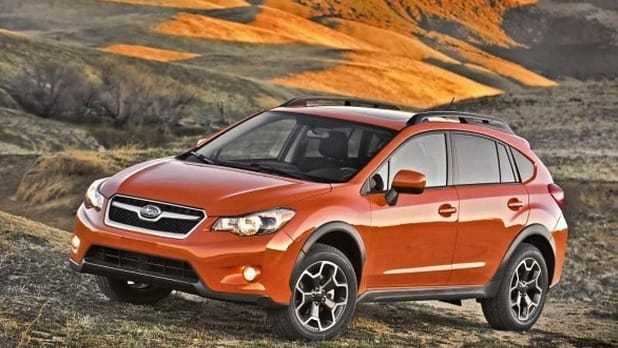Checklist: What you should clarify before your lease

So, you've decided to lease a car? That's a great choice! But before you lease your dream car, there are some important things to consider and organise to make sure the process goes well.
In this article, we present you with a practical checklist that you can tick off before you relax and decide on a leased car. Whether you're a first-time lessee or experienced, these tips and tricks will help you make the best decisions and find the car that's perfect for you and your lifestyle.
- No debt collection
- No outstanding debts
- No negative credit card entries
- gowago.ch eligibility test completed
- CRIF check (optional)
- Monthly fixed costs calculated
- Additional expenses calculated
- Aware of costs for car insurance, service, maintenance etc.
3. Wage certificates and regular income
- Permanent employment (normal case)
- Wage slips ready, should bank request them.
- Own vehicle needs known
- Overview of vehicles obtained (gowago.ch will be happy to help you with this)
5. Determine running time and mileage
- Estimate annual kilometres
- Determine time commitment
- Get an overview of fully comprehensive insurance options.
- Compare Swiss leasing rates with the gowago.ch rate comparison tool
- Monthly rates of different cars and offers compared
- Residual values of the offers viewed and compared
- For 0% offers: Checked where this is reflected in the price
- gowago.ch offers compared with the favourites function
8. Check contract terms carefully
- Example contract for specific cars viewed through "Lease this car" on gowago.ch
- Read all contracts carefully
9. Understand return conditions
- Liability in case of damage
- Consequences of extra kilometres
10. Returning or extending the lease
- Check renewal options
- Check return options
Prologue:
To apply for a lease, you need to either hold Swiss citizenship or have a B or C residence permit. You must also have resided in Switzerland for at least 3 months before applying. Additionally, you have to be 18 years of age or no older than 70 at the end of the contract.
1. Check Creditworthiness
Before applying for a lease, you should have a rough idea of your credit score. A good credit score will help increase your chances of getting a lease.
Make sure there are no outstanding debts, debt collections or negative entries in your credit file. If you have a solid credit score, chances are you will be seen as a trustworthy customer by leasing companies.
Please note that you should calculate your individual budget, even if you will be sharing and practically financing your car with your partner. The bank will deduce your budget based on your singular income, not on a combined household income.
To help you gauge your creditworthiness, you can complete our eligibility test here. The score should not be considered definitive, but rather a guide.
You can also have your credit checked by CRIF. You can find this service here.
2. Set budget
Think in advance about how much you want to spend each month on leasing a car. Your monthly income, your monthly fixed costs, and other expenses should influence your budget. Also remember that you will need to provide us with this information during the leasing application process and it will affect your eligibility for leasing.
Set a realistic budget that includes running costs such as insurance, taxes and maintenance. This way you avoid unpleasant surprises and find a car that fits perfectly into your financial framework.
3. Wage certificates and regular income
In most cases, you need a regular income in order to take out a lease. This means that you need a permanent job, which will continue indefinitely. If you are still in the probationary period of your job or your employment contract is about to expire, the bank will decide whether to grant your request on a case-by-case basis.
You do not have to submit your payslips when you check out. However, the bank may ask to see your three most recent payslips if you are employed on a monthly salary basis. If you are paid by the hour, the bank may ask to see the last 6 months' payslips. Having your payslips ready can help speed up the leasing process.
4. Select vehicle type
Which type of vehicle best suits your lifestyle and needs? Choose between a zippy city car, a spacious SUV or an environmentally friendly electric car.
Be really sure about what kind of car you really need and what makes sense - if you are expecting a child, you might want to get a more family friendly car instead of that 2-seater convertible. If you live in the centre of a city, perhaps a Jeep Wrangler is not as practical as a Fiat 500. Remember: Once you have signed your contract, you cannot simply give the car back with a simple snap of the finger.
Also take insurance cost, fuel efficiency, and equipment into consideration. Maybe you don’t care about a rearview camera, but want a banging stereo. Check what you need and if the car you are considering has the equipment you wish for.
Also consider the purpose and frequency of use of the vehicle. If you are not sure, our advisors will be happy to help you choose a vehicle.
5. Determine Running Time and Mileage
Consider how long you want to lease the car and how many kilometres you anticipate driving each year. The term and mileage directly impact the monthly leasing rate. Choose an option that fits your requirements.
If you sign a contract for a specific period, ensure that you can genuinely commit to this duration. Early termination of a leasing contract implies that you must compensate for the car's depreciation. Therefore, if you already know that you will be moving out of Switzerland in a year, for instance, you should not enter into a leasing contract, as leasing contracts typically have a minimum duration of 2 years.
The normal length of contracts lie between 24 months and 60 months.
It is sensible to select a slightly higher category for the annual mileage. So, if you know that you drive approximately 10,000 km per year, but it could occasionally be more, opt for the 15,000 km package. This is because excessive mileage overruns will have to be paid for additionally at the end of the contract. You can choose kilometre packages of up to 30'000km.
6. Compare Insurance Options
With a leasing contract, you must always have comprehensive insurance. Compare different insurance options.
Do you want to choose your insurance? Of course, that's not a problem! When selecting your insurance, pay attention to the coverage amounts and the included services - different insurance companies include different services in their contracts. Ensure that you are fully insured and prepared for any eventuality.
7. Compare Leasing Offers
Now it's time to find the best leasing deals. Important factors in making a decision include: leasing interest rate (nominal interest rate), monthly instalment, contract conditions, and residual value.
Some offers may tempt you with 0% leasing or similar when it comes to the leasing interest rate. Carefully check what this means in such offers, as the low percentage may be offset by a higher residual value or other factors.
At gowago.ch, the leasing interest rate for all cars on our platform, whether new or used, is 4.49%. This gives you a constant overview of how much interest you pay in leasing.
To get an overview of the leasing interest rates in Switzerland, you can look at our interest rate comparison here.
The residual value is the theoretical value that the vehicle will have at the end of the lease. The residual value is determined by various methods. As the residual value is contractually fixed, you may be able to take over the vehicle at the end of the lease for this price.
On gowago.ch, you can easily compare cars on our platform by saving them under "My cars". You can then compare several of our offers to see what makes the most sense for you.
8. Check Contract Terms Carefully
Before you sign the lease contract, read it thoroughly and ensure that you understand all the terms and elements. At gowago.ch, you can preview the contract when making a non-binding inquiry about a car, giving you a complete overview of all conditions.
Simply click on "Lease this car" next to your desired car to receive this draft contract. You can always contact our advisors to learn more about the contract creation and signing process.
9. Understand Return Conditions
Learn about the return conditions at the end of the lease period. Understand what damage is accepted as normal wear and tear and what additional costs may arise from excessive wear and tear.
To prevent issues, you should adhere to the service intervals during your lease and have any damage repaired - regardless of whether it falls under the insurance benefits or not.
10. Returning or Extending the Lease
Find out what your options are at the end of the lease period. Do you want to return the car, extend the contract or maybe even buy the car? What happens if you give the car back damaged or with too many kilometres? What are the terms should you want to terminate your contract early? Plan early to ensure a smooth transaction.
Conclusion
Leasing a car can be a fantastic way to enjoy a high-quality vehicle without the high initial costs and depreciation of buying a car outright. By ticking off the points above and making the right decisions, you can ensure that the leasing experience is smooth and enjoyable. Always remember to inform yourself well about the contract terms and choose the right car for your needs and budget. This way, you can fully enjoy the joy of driving and experience mobility in a new way. Have fun with your new leased car!


